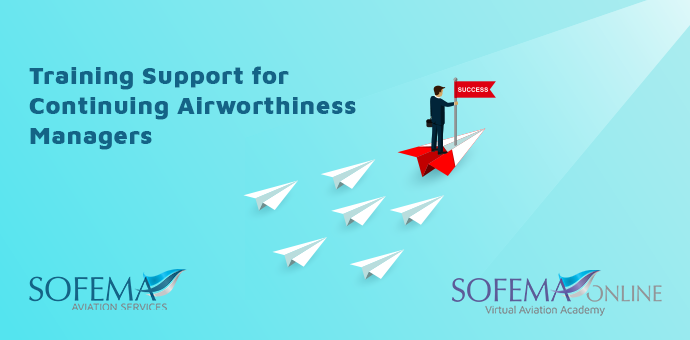Introduction
The Job of the Continuing Airworthiness Manager is to ensure that all Aircraft Technical Records are maintained correctly and that the aircraft is current with all maintenance requirements and is fit to fly.
The Continuing Airworthiness Manager is also responsible for the development and maintenance of the approved maintenance program together with its administration. In addition, he has to generate work packages to ensure the aircraft remains fully compliant with the Maintenance Program.
The Continuing Airworthiness Manager (CAM) is typically an employee of the operator (nothing to do with an EASA 145 approved organisation). It is a fundamental responsibility of the operator to perform oversight of the aircraft’s maintenance compliance.
The duties of the CAM involve the management of 4 key areas:
a) The Maintenance Planning Department, which manages the Maintenance Program and generates Work Packages,
b) The Technical Records Department, which looks after all the Aircraft Records,
c) The Engineering Department, which performs analysis of in Service information and
d) The Reliability Department, which maintains oversight of the effectiveness of the maintenance product.
Activities to be found within the CAMO include:
a) Reviewing and ongoing Monitoring of Airworthiness Directive Compliance for each aircraft type,
b) Interface in the event of any damage between the related parties, where necessary creating repair reports,
c) Managing Aircraft Reliability Reports,
d) Tracking Maintenance due including hard time components, ensuring that such components are replaced on time.
EASA Regulations
The regulatory requirements which drive the role of the Continuing Airworthiness Manager may be found in EASA Part CAMO – EASA has created a common environment for regulation across all European member states, providing a comprehensive regulatory structure through which all aircraft can be managed and maintained in terms of the obligations of continuing airworthiness.
A role of the CAM is to be able to interpret the regulations and to ensure full compliance. The role is not without challenges as there is the possibility of incorrect interpretation of the regulatory standards. The goal is to be part of a process which delivers continuous improvement.
People who are considering a job as Continuing Airworthiness Manager will typically have completed formal aeronautical education and have either an Aircraft Maintenance Engineers Licence or a Degree, together with at least 5 years of relevant experience.
Which Courses are Most Appropriate for my role in the PART M / PART CAMO Organisation as Continuing Airworthiness Manager (CAM)?
Sofema Aviation Services (SAS) www.sassofia.com and SofemaOnline (SOL) www.sofemaonline.com offer the following 15 courses which are all designed to contribute to developing and growing the competence of the Continuing Airworthiness Manager.
a) Part M with Voice Over / Part M 2020
b) EASA Part 21 Review for CAMO Staff
c) Introduction to Aircraft Maintenance Planning in an EASA Environment
d) Developing an Effective Reliability Program Essentials
e) Aviation Quality Auditing & Root Cause Analysis for Nominated Persons and Business Area Managers
f) Safety Management System Overview and Recurrent
e) RVSM Continued Airworthiness & Maintenance Practices
f) Introduction to Master Minimum Equipment List (MMEL) and Minimum Equipment List (MEL)
g) HF & SMS Initial course for Continuing Airworthiness Staff
h) Fuel Tank Safety
i) EWIS
k) Part 145 Foundation
l) EASA Part CAMO
m) SMS for Part CAMO
n) Managing Aircraft Lease Agreements and Maintenance Reserves
Next Steps
Follow this link to our Library to find & Download related documents for Free.
Sofema Aviation Services & Sofema Online provide classroom, webinar & online training. For additional information please email team@sassofia.com
Tags:
EASA Part M, continuing airworthiness management, Online Training, EASA regulations, Aviation regulatory training, EASA Part – CAMO, SAS training, SOL Training, CAMO duties, continuing airworthiness manager





